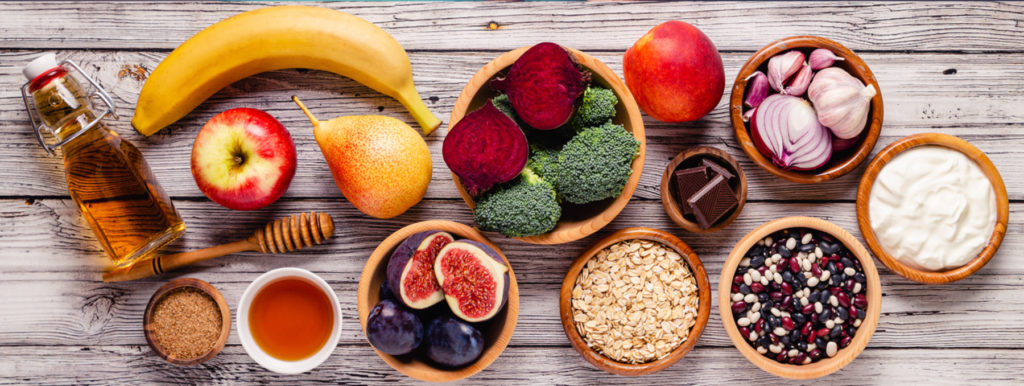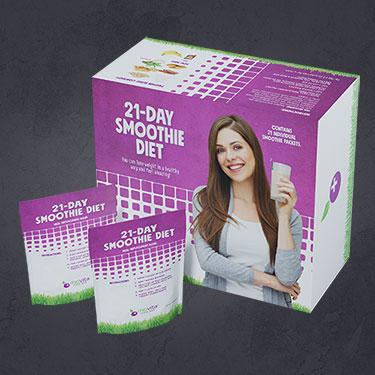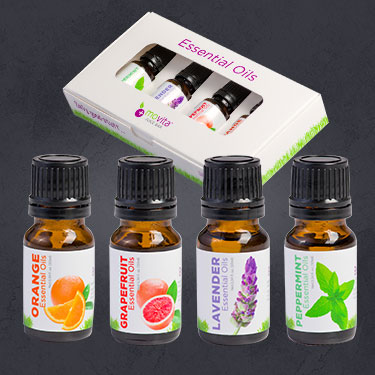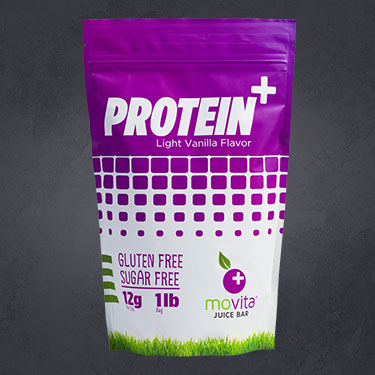
We’re learning more about the important role of the gut microbiome –- the millions of bacteria that populate our intestines, a.k.a. “guts” –- in promoting good health.
The gut microbiome contains both helpful and potentially harmful bacteria, and when the healthy bacteria outnumber the potentially harmful bacteria, we have a healthier immune system and decreased risk of several chronic diseases.
The gut microbiome starts to develop at birth, and throughout our lives everything from illnesses, antibiotics, food choices, smoking, and even the environment all impact the amounts and types of bacteria in our guts.
You’ve probably heard about probiotics and may even regularly choose foods like yogurt or kombucha, which contain probiotics. Probiotics are live microorganisms that aren’t digested in the stomach. They help promote healthy bacteria in the gut microbiome.
Take this one step further to prebiotics. Prebiotics are metabolized and fermented in the digestive tract to create short-chain fatty acids which provide energy to probiotics. Think of prebiotics as the food that supports probiotics.
Prebiotics also:
- Help regulate bowel movements
- Produce neurotransmitters that trigger mood changes
- Stimulate the production of hormones that play important roles in hunger and satiety
- Improve bone density by helping bones mineralize and absorb calcium and phosphorus
- Improve immune system function
- Increase the production of healthy bacteria and decrease harmful bacteria that cause some types of cancer and bowel disorders such as ulcerative colitis and Crohn’s disease

Which Foods Contain Prebiotics?
Our food choices are one of the most important factors in developing a healthy gut microbiome. By intentionally consuming more whole plant foods that contain prebiotics and limiting added sugars, salt, preservatives, and unhealthy fats, we can help keep our guts healthy, which impacts our overall health.
The majority of prebiotics come from carbohydrates in plants: asparagus, garlic, chicory, onion, Jerusalem artichoke, wheat, honey, banana, barley, tomato, rye, soybean, dried peas, lentils, and beans like chickpeas, kidney beans, and black beans. Recently seaweed and microalgae have been identified as sources of prebiotics. There are many different prebiotics. The science is just starting to identify how each different prebiotic might impact health.
Inulin has been shown to improve stool consistency and frequency (which is a hallmark of a healthy gut microbiome) and also plays a role in bones absorbing calcium to stay strong, lowering LDL cholesterol (the bad type of cholesterol associated with heart disease), reducing insulin resistance, and decreasing risk of colon cancer. Inulin may also play a role in a healthy body weight. Foods that contain inulin include burdock root, chicory root, dandelion greens, garlic, Jerusalem artichokes, leeks, onions, soybeans, and wild yams.
Fructo- and galacto-oligosaccharides are also important for healthy bowel habits, cardiovascular health, and reducing insulin resistance, and also play a role in satiety which can impact body weight. Foods that contain oligosaccharides include onion, chicory, garlic, Jerusalem artichoke, blue agave, asparagus, bananas, legumes, soybeans, whole wheat, watermelon, kombucha, and leeks.
Resistant starch is a type of fiber that digests very slowly over a longer period of time. When resistant starches are ultimately broken down, they act as a prebiotic to maintain a healthy immune system and decrease inflammation. Foods that contain resistant starch include barley, oats, rice, legumes, and potatoes that have been cooked and then chilled.
Pectin is a type of starch often used to make jam and jelly. Pectin acts as an antioxidant and promotes a healthy gut. Foods high in pectin include apples, apricots, peaches, raspberries, carrots, green beans, tomatoes, and potatoes.
Want to see even more ways to add prebiotics into your diet? Don’t miss next week’s blog where we discuss ways to incorporate prebiotics into your everyday.
As always, follow us on Instagram @movitajuicebar for everything fresh, healthy & nutritious!
See you for our next blog post!
DISCLAIMER: These statements have not been evaluated by the FDA. The information is for informational purposes and is not intended to treat, diagnose or cure any illness. Consult a physician before taking any action.
Want to contribute great content?
We are looking for contributors provide our readers with great healthy content to encourage positive living. If you're interested in becoming a contributor pease email us at blog@movitajuicebar.com



